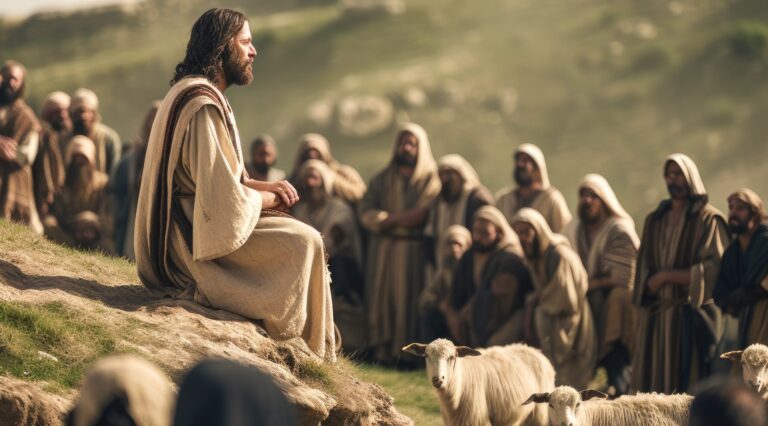Jesus sometimes trained his budding leaders by putting them in challenging situations and evaluating their responses. It seems that’s what he was doing in a narrative found in the book of Luke.
The story unfolds as Jesus is in the process of handing the “keys of the kingdom” to his disciples. But what would they do when they had the keys in their hands? How would they treat people? How would they deal with rejection and persecution? What would they do with power?
When the days drew near for him to be taken up, he set his face to go to Jerusalem. And he sent messengers ahead of him, who went and entered a village of the Samaritans to make preparations for him. But the people did not receive him because his face was set toward Jerusalem.
And when his disciples James and John saw it, they said, “Lord, do you want us to tell fire to come down from heaven and consume them?” But he turned and rebuked them. And they went on to another village” (Luke 9:51-56).
Commentators wonder why Jesus would have taken this route to Jerusalem through Samaria. It certainly wasn’t the normal route for a Jew, and this time, there were no divine appointments with a woman at a well. It seems most likely that Jesus intentionally traveled through unfriendly, even hostile territory to teach his disciples a vital lesson and to help them identify in themselves a spirit of retaliation.
By this time in the Jesus story, he’d gone from an obscure carpenter to a well-known, anointed, controversial teacher and miracle worker. He’d been both loved and hated. He’d been worshiped and despised. He’d been received, and he’d been rejected. He was divine yet appeared so ordinary. Though he’d weeded out the bread seekers, many still followed him, while many others were still unsure what to make of him.
The disciples understood who he was— “the Messiah, the son of the living God.” The Father had revealed this to them. He deserved respect. He deserved honor. He deserved hospitality. As his apostles, they felt they deserved these things too. And when they didn’t get what they felt they deserved, they felt slighted, hurt, insulted, and angry. So they were tempted to lash out, strike back, and get revenge: “Let’s teach them a lesson, Jesus! Let’s burn ’em up!” But Jesus wouldn’t have it and immediately deals with them:
“But he turned, and rebuked them, and said, Ye know not what manner of spirit ye are of. For the Son of man is not come to destroy men’s lives, but to save them. And they went to another village” (Luke 9:55-56, KJV).
Apart from the grace and love of God poured into me by the Holy Spirit, my heart will become a cesspool of vengeance. I’ll want to retaliate. I’ll want to inflict pain on those who inflict pain on me. I’ll want to belittle those who belittle me. I’ll want to even the score. And this is especially tempting for Christian leaders with even a measure of power.
This Spirit of vengeance is worldly, fleshly, even demonic, and must be continually eradicated from my heart and the heart of every disciple.
Prayer:
Father of Jesus, you are love, you are mercy, you are kindness and compassion. Cleanse from my heart even the slightest residue of vengeance and retaliation. Remind me again of the words of Jesus: “But I say to you, Do not resist the one who is evil. But if anyone slaps you on the right cheek, turn to him the other also. And if anyone would sue you and take your tunic, let him have your cloak as well… But I say to you, Love your enemies and pray for those who persecute you” (Matthew 5:38-40, 44). I pray this in Jesus’ name, amen.




